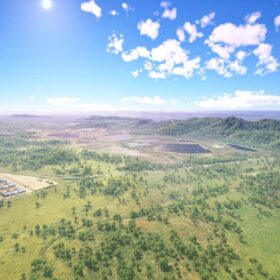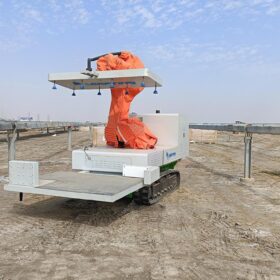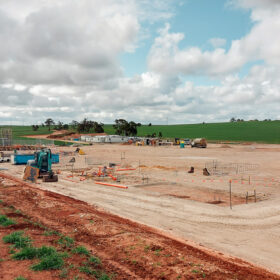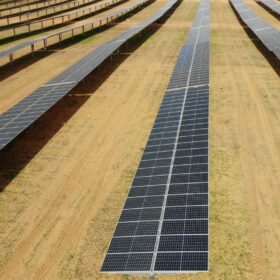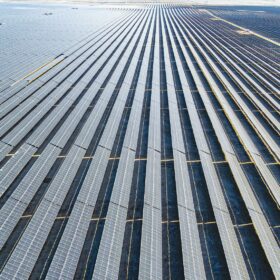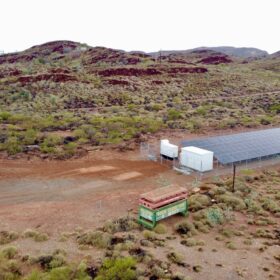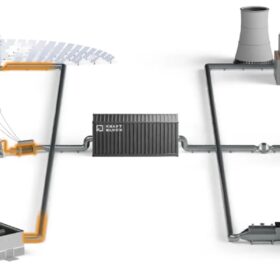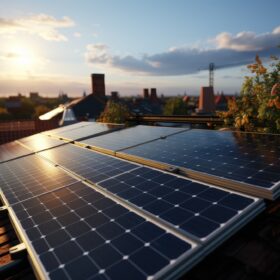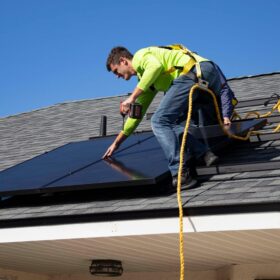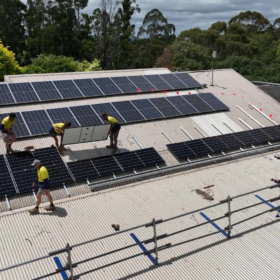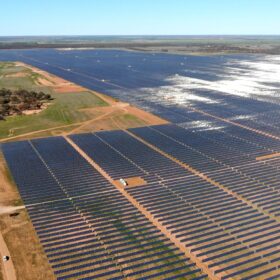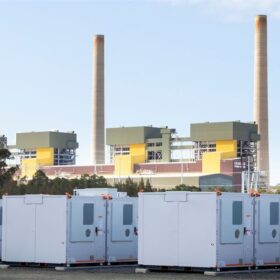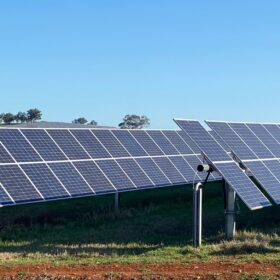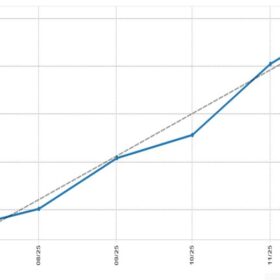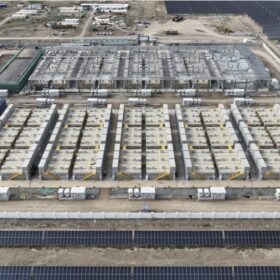Queensland ends support for 3 GW green hydrogen project
Plans to develop a 2.88 GW green hydrogen production facility near Gladstone on the central Queensland coast are in serious doubt after the state government announced it will not commit funding to the $12.4 billion project.
Leapting rolls out PV module-mounting robot in Australia
Leapting will soon deploy a solar module-mounting robot at an Australian project, saying the automatic installation speed of the AI-driven machine can reach one panel per minute, delivering an estimated 30% reduction in installation costs on utility scale solar projects.
Modo Energy forecasts big future for NEM battery fleet
Australia’s grid-scale battery fleet is forecast to grow rapidly in the next three years with market analytics platform Modo Energy revealing 16.8 GW / 42.8 GWh of battery energy storage projects are in the pipeline in the National Electricity Market through to 2027.
TotalEnergies seeks green tick for 320 MW solar and battery project
French energy company TotalEnergies is seeking Australian government approval to develop a 320 MW solar farm and 320 MW / 780 MWh battery energy storage system in the New England region of New South Wales.
Future clean energy investments stalled by outdated national electricity market
Clean Energy Investor Group research finds the national electricity market is an outdated design – built for an era of coal and gas – and hinders investment in modern large-scale energy projects like wind, solar, and batteries.
Australia’s longest connected electric vehicle highway completed
Australia’s longest connected electric vehicle highways is now operational in Western Australia, covering a 7,000 kilometre route and featuring 110 charging points across 49 locations.
Thermal storage beats hydrogen, electrification on industrial costs
A new study in Germany shows the advantages of thermal energy storage in the decarbonisation of industrial processes, including in Australia. The researchers noted clear cost advantages and high potential for flexibility in the power grid.
Planets align for Australia’s first live DER integration into wholesale markets
Manager of Western Australia’s South West Interconnected System Western Power has been allocated $20.8 million from the Australian Renewable Energy Agency for its Project Jupiter, which for the first time in Australia will integrate a live distributed energy resources marketplace with wholesale markets.
Distributed solar on a roll breaking output records nationwide in Q4
Like a gift that keeps on giving across Australia’s electricity markets, distributed solar has punched yet again above its weight to break records in the close out of 2024, according to a new report from the Australian Energy Market Operator.
Communities hit by outages get solar powered energy hubs for backup
Solar powered energy hubs are ready to help keep the lights on for 24 Victorian communities as part of a $7.5 million state government program to build energy resilience when faced with prolonged outage.
